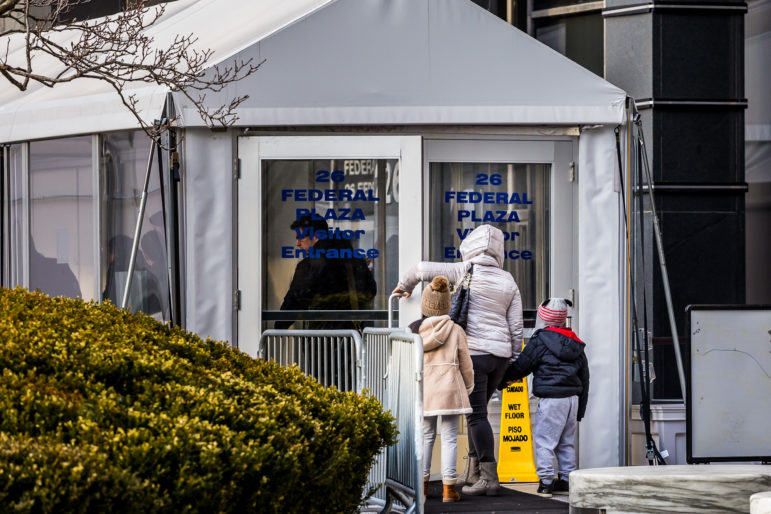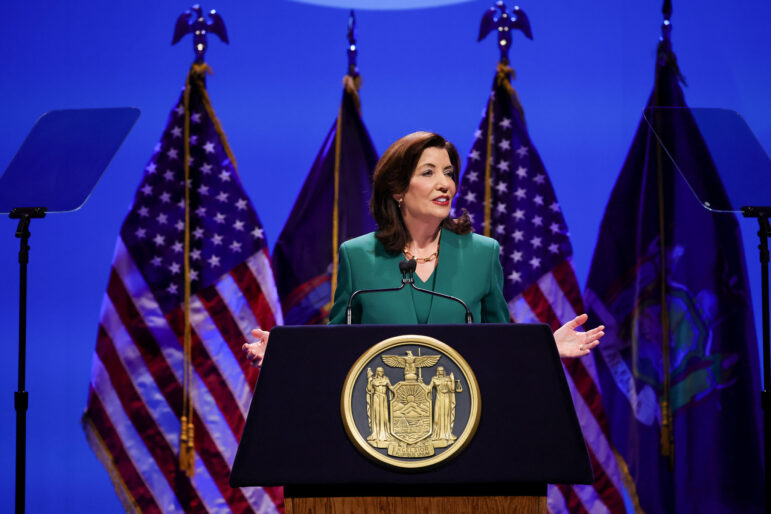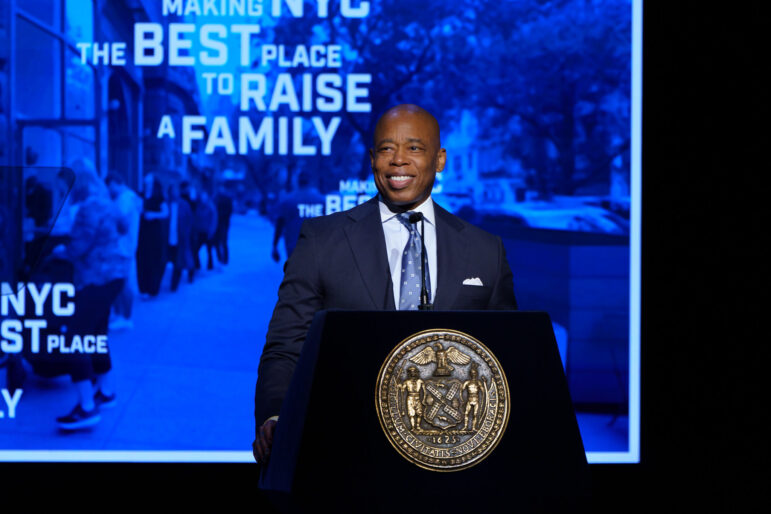Seven years ago, Democrats on Staten Island picked the gentlemanly former State Assemblymember Eric Vitaliano to run against a young Republican City Council member, Vito Fossella, for the Island’s sole congressional seat. They watched in shock as their candidate, an anti-abortion fiscal moderate, got hammered at the polls. Within a matter of weeks, an onslaught of radio ads sponsored by the Republican National Committee had translated Vitaliano–the author of New York State death penalty law–into a raving tax-and-spend liberal.
This time around, the Staten Island Democrats are loaded for bear.
They’re putting up another former assemblymember to run against Congressman Fossella, and this one is an unreconstructed, loud-and-proud progressive: former State Assemblymember Frank Barbaro, a onetime longshoreman who passed dozens of the housing and labor laws that protect New Yorkers.
The Dems don’t necessarily believe their candidate will beat Fossella on November 2. Fossella, who also serves Bay Ridge and Bensonhurst, Brooklyn, is photogenic and popular. But they do expect, in the parlance of the dockyards, to “lump him up.” So do labor unions. “Maybe we won’t be able to get him this time,” says Ed Ott, policy director for the New York City Central Labor Council, “but what we can do is soften him up and take him out in two years.”
Labor is keen to take out Fossella because he hasn’t objected to the Bush adminstration’s efforts to limit collective bargaining on federal work sites. While moderate New York Republicans, including Long Island’s Peter King, fought to protect project-labor agreements, Fossella was silent.
So the Central Labor Council approached Barbaro. He had been serving as a State Supreme Court judge in Brooklyn when he took mandatory retirement last year, at age 76. Barbaro was preparing to write his autobiography when he got the call from Central Labor Council chief Brian McLaughlin. The ex-politician decided to get back in the game. “I’m not a young man,” says Barbaro. “I’m not looking to start a new career.”
Barbaro has run as labor’s man before, and done well. In 1981, he ran against Mayor Ed Koch in the Democratic primary and garnered 37 percent of the vote.
Today, Barbaro’s looking to reconnect with working-class voters. “Democrats need to start acting more like Democrats,” he says. “We’ve been moving away from our roots.” Barbaro outlines these in progressive and populist broad strokes: He wants to see single-payer health care, the protection of overtime, no war in Iraq and a “massive public works program” to put the unemployed back to work.
The candidate comes from this world. The son of Italian immigrants living in Bensonhurst, Barbaro worked on the Red Hook docks in the 1950s, fighting mob control by refusing to work in unsafe conditions. After putting himself through law school at night, he ran for state Assembly in 1972 and for the next 25 years made a name for himself writing legislation to protect renters, homeowners and city workers.
In 1982, as chair of the powerful Labor Committee, Barbaro wrote New York State’s version of federal occupational safety law. He fought rollbacks in workers’ compensation, increased the minimum wage and pensions for widows of firefighters and police officers, and established the “warranty of habitability” that gave tenants the right to occupy safe and healthy apartments.
But in 1992, after Barbaro blocked efforts to reduce workers’ compensation for livery drivers, he was stripped of his labor chair by Speaker Sol Weprin. “Weprin wanted to make an accommodation on the issue about cost,” recalls Brooklyn Assemblymember Jim Brennan. “Frank was inflexible.”
Barbaro’s inflexibility on workers’ rights may be the key that turns the vote in staunchly Republican Staten Island, where some of the candidate’s other positions–like support for legal abortion–are not popular. “My guys are more traditional-values guys, and do tend to be Republican,” says Jack Kittle, political director for District Council 9, the painters union. He plans to personally ask each of his 550 members living in the district to vote for Barbaro. “When we got to talk to our members, we don’t get involved in side issues like gun control and gay marriage,” says Kittle. “We talk strictly about labor, putting food on the table, rights to work. We’re not talking about candidates as much as issues, and Vito Fossella gives us a very good excuse to knock on doors.”
Ousting an incumbent congressman is difficult, especially in New York City, where advertising is extremely expensive, points out Joe Mercurio, a Republican political consultant. As of September, Fossella had raised $873,655; Barbaro, $244,897. That’s why labor’s support becomes crucial. “Vito’s district has the highest proportion of union members in the country,” notes Mercurio. “Barbaro is a very big labor guy. All the unions are going to go to bat for him.”
So is the Working Families Party, which has put Barbaro on its ballot line. “From our point of view, we could not have a more crystalline clarity between candidates,” says Executive Director Dan Cantor. “On the one hand, you have Frank Barbaro. On the other, the most right-wing member of the New York Congressional delegation.” •
Ruth Ford is a contributing editor to Habitat magazine.








